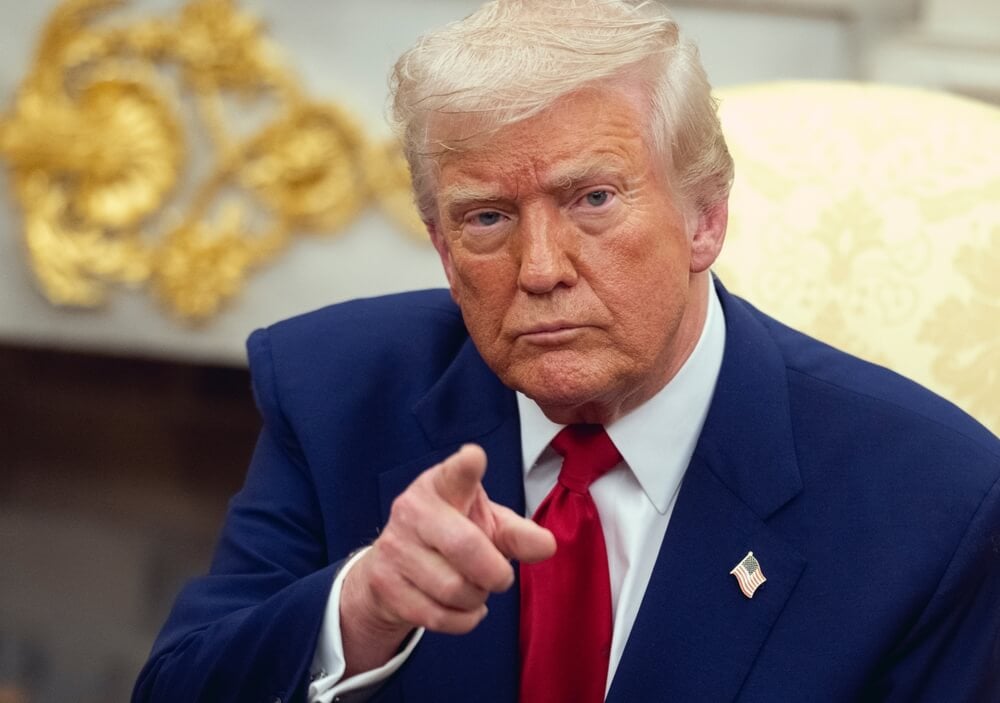After the Anchorage summit, Russian officials were very vocal about the economic impact of a potential peace deal for Ukraine on Russia.
"It is very important that President (Donald) Trump outlines a significant economic potential of cooperation between the US and Russia," said one of them, the main Russian negotiator with the US and Putin's economic adviser, Kirill Dmitriev.
Economic benefits are one of Moscow's main drivers in the current peace process, of which the Russian-US summit in Alaska was the most important moment so far, even if it didn't bring calm on the front.
The Kremlin expects the West to lift its three and a half years of economic isolation as the main goal for its cooperation in achieving peace in Ukraine.
Expectations in this regard have risen even further since Moscow has noticed Washington's and President Trump's personal willingness to accommodate Russian aspirations, which often look like blackmail.
Moreover, behind the main negotiating stage in August, officials from both countries have been talking intensively about the new US-Russian energy deals.
According to Reuters, one of them would be the return of ExxonMobil to the Russian Sakhalin 1 oil and gas project. They also considered the option of Russian procurement of American equipment for LNG terminals in the Arctic.
Moscow will want to charge for peace
At this stage, Moscow has shown unequivocally that it will literally charge financially and economically for every step it takes to stop the invasion of Ukraine.
The Trump administration, apparently, believes that this is a good path to peace and a condition that should be met for the sake of a higher goal.
Making peace conditional on economic benefits has deepened a major rift between the Western allies
However, European partners (most of them) are convinced that making economic concessions to Moscow would not only ease Russia's crippled war economy but also strengthen its capacity to continue aggression, rather than lead to peace.
The Kremlin can be satisfied because making peace conditional on economic benefits has deepened a major rift between the Western allies.
Their disagreements over economic concessions to Moscow could drag on and deepen until the end of the peace process, and only Moscow stands to gain.
Disputes over frozen Russian funds
The crucial point in this dispute between the Western allies is the position on frozen Russian financial assets. Conflicting views on whether or not Russian state funds can be used to support Ukraine will be the terrain on which the West's general attitude towards the overall peace settlement could collapse.
For the moment, the EU seems determined to abandon its reluctance to use the frozen Russian funds and start using them for budget support for Kyiv and the future reconstruction of the devastated country.
"We can’t possibly imagine that ... if ... there is a ceasefire or peace deal that these assets are given back to Russia if they haven’t paid for the reparations," said Kaja Kallas ahead of several days of talks between EU foreign ministers in Copenhagen.
We are advancing the work on the Russian frozen assets to contribute to Ukraine’s defence and reconstruction - Ursula von der Leyen
The discussion on possible models for the use of frozen Russian funds to support Ukraine will be the main topic on the table ahead of the two-day informal ministerial meeting, which begins on Monday.
The head of the European Commission, Ursula von der Leyen, stressed more strongly than before that the EU wants to move in the direction of using frozen Russian funds to support Kyiv. "We are advancing the work on the Russian frozen assets to contribute to Ukraine’s defence and reconstruction. "
The USA will oppose the European plans
The disputes over the legality of the use of Russian funds were defused somewhat last year, with the G7's decision that the capital of Russian assets would remain untouched, but the profits from the investments would be redirected to Ukraine.
The first three billion euros of the planned 45 billion from this source were diverted to Ukraine in January this year.
 Washington will oppose European plans to use frozen Russian funds
Washington will oppose European plans to use frozen Russian funds
It appears that the EU has now taken a significant step forward, approaching the decision to direct money from the principal of Russian funds to Ukraine, rather than solely from the profits they generate.
This has been influenced by several factors, but above all by Washington's new policy of distancing itself from Ukraine and shifting the burden of financial and military support for its fight against Russian aggression onto the Europeans.
In this turn of events, European governments find justification for their intention to use all Russian funds to support Ukraine, as the vast majority of Russian state funds are held by European, rather than American, financial institutions.
Although the Russian figures are higher (approx. USD 330 billion), it is estimated that European banks hold most of the money from the frozen Russian sovereign assets - approximately USD 225 billion, out of a total of USD 280 billion. American banks "only" hold about USD 5 billion, so the US has less interest but also less responsibility for the fate of Russian money.
However, Washington will inevitably oppose European plans to use frozen Russian funds, because such a European course will anger the Kremlin.
If European ministers draft a model for diverting Russian finances to Ukraine at the forthcoming meeting in Denmark, next week could be the beginning of a new confrontation between the Europeans and the US in the search for a peace solution.